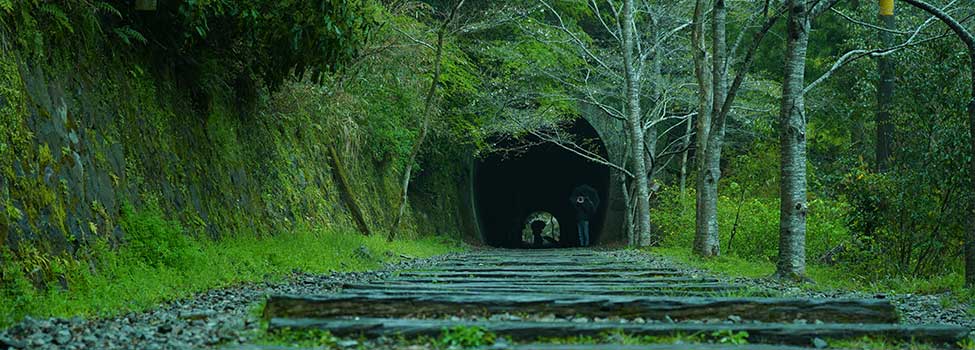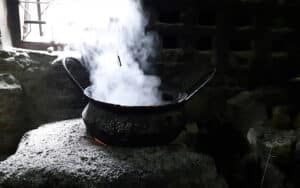In Defense of Ancestor Reverence: A Letter to the Editor of The New Yorker
In the May 9, 2022 edition of The New Yorker, critic and author Maya Jasanoff mentioned Ancestral Medicine in a piece titled “Our Obsession with Ancestry Has Some Twisted Roots.” Ancestral Medicine was named as one part of a larger critique of what Jasanoff perceives to be a misguided, obsessed, or even hazardous degree of focus on ancestors. As the founder and director at Ancestral Medicine, this is a response to the premises of Jasanoff’s critique.
Specifically, three assertions in Jasanoff’s article warrant closer consideration. The first is the claim that ancestor reverence is largely based in a supremacist attitude and/or likely to enable such views. The second is that seeking personal healing is somehow at odds with or risks distracting from work for systemic change. Finally, Jasanoff characterizes reciprocity for genealogy, historical inquiry, or ancestral healing services as exploitative of peoples’ larger misguided obsession with ancestry. As The New Yorker claims over a million readers and such assertions can impact readers’ perceptions of their ancestors and their willingness to explore a longing to understand more about their people, I’ll consider each of these recurrent distortions through my own arguments that ancestor reverence is an antidote to supremacy, personal and family healing supports systemic change, and healing arts are honorable vocations.

Ancestor Reverence is an Antidote to Supremacy
Jasanoff devotes the majority of her critique to the assertion that ancestor reverence can be co-opted into a racist or supremacist framework. On this account, I fully agree. Whether through extreme examples like Nazi Germany or blood quanta laws in the United States or more individual choices to identify with royalty or favor one set of ancestors over another, knowledge of one’s blood ancestors can become entangled with power, status, and identity in ways that replicate supremacist policies and views. This does not mean that ancestor reverence is causative of supremacist views.
Where Jasanoff heads into problematic terrain is with the assertion of “near-universality of hierarchies based on ancestry” and that to relate directly with one’s ancestors leads one down a path of ancestral supremacy. Considering the prevalence of respect for family ancestors throughout most of Asia and Africa alone, at least a quarter if not half of humans on Earth participate in some form of basic ancestor reverence and ritual. To suggest that several billion people are not capable of relating with their ancestors without falling into delusions of ancestral superiority is at best an unsubstantiated extrapolation if not a demeaning characterization of an ancient and common form of basic relational care.
To the contrary, I have found increased historical knowledge of and direct, ongoing relationship with the ancestral spirits of my blood lineages to be one supportive antidote to the white supremacy so rampant in the United States. “Whiteness” and the socialization of people into generic racial categories is driven by amnesia and erasure of geographic and cultural specificity – Ghanains, Congolese, and Kenyans all become Black; Poles, Scots, and Armenians all become White; Mexicans and Chileans of both Indigenous and Spanish lineages all become Latino. I am a White male and U.S. citizen; however, I prefer to situate myself as a descendant of early English and German settler colonialists to North America. There are no ancestrally generic humans, and no “white people” on Earth more than 500 years ago. To resist this flattening and erasure is to interrupt the ongoing project of assimilation into baseless racial categories by instead favoring specific and nourishing connections with ancestral lands and cultures.
This is not only a personal reflection. For 20 years, I have supported thousands of people around the world in the process of ancestral reconnection and trained over 150 practitioners to guide the work of ancestral lineage healing for others. In this I have repeatedly observed that choosing to come into a more conscious relationship with one’s blood lineage ancestors supports a greater sense of healthy pride as well as an increase in one’s ability to engage skillfully with people of other ancestries. This relational benefit is in part from the increased tendency to see other individuals in an ancestral and generational context, each down-lineage from beauty and sorrow. Perhaps this is the distinction needed in Jasanoff’s otherwise important warning about co-opting ancestral knowledge for supremacist agendas. Supremacy typically arises from unhealed insecurity or inferiority whereas healthy pride – including in one’s ancestors – is a source of healing, resilience, and accountability. Ancestral, racial, or cultural supremacy is not healed or transformed by severing relationships with one’s ancestors.

Personal and Family Healing Supports Systemic Change
In her critique Jasanoff suggests that contending with the racist past (and present) in the United States in ways that center ancestral inquiry and relationships “does little to address the material effects of generational dispossession.” The implication is that efforts to face and heal ancestral legacies in one’s own personal life, family, or lineages are somehow in tension with or risk detracting from work for systemic or structural change in forms like reparations, repatriation of land, and overhaul of racist policies. This is a problematic binary.
Just as knowledge of or relationship with one’s ancestors can be co-opted by supremacist views, it’s also possible that personal or ancestral healing can enable a person to dissociate from cultural harms in urgent need of remedy – this possibility does not mean such avoidance is the norm. Other approaches to personal well-being must necessarily be included in such a critique: psychotherapy, psychotropic medications, massage and all forms of bodywork, meditation, prayer, and any other secular or spiritual practice for healing. Framing healing arts as obstacles to systemic change with the logic that more suffering will lead to greater political action overlooks that our systems and institutions are created and sustained by living breathing humans. The well-being of those humans and the living Earth are a key metric for the health of those systems, and we need more healing, not less. Whatever motivates people to engage with difficult legacies in responsible and resilient ways is one part of the way forward. In this way genealogy, historical inquiry, and ancestral healing are more often an ally of systemic change than an obstacle.

Healing Arts are Honorable Vocations
Jasanoff’s specific critique of our work at Ancestral Medicine is three-fold: that the approach is “New Age-style,” that there is something dishonest about using the term “work” rather than “worship,” and that ancestral healing practitioners may engage in financial exchange for services. Would Jasanoff also characterize the billions of people on Earth relating with their ancestors today as New Age or does this label only apply in a cultural context where people are reclaiming frameworks of ancestor reverence that were interrupted or lost through painful legacies of colonialism, erasure, and occupation of land? Is the dismissive label of New Age reserved only for European-ancestored people like myself, or are African-Americans, Native Americans, and Asian-Americans who honor their ancestors also New Age? My concern with being labeled New Age by a Harvard professor writing in the New Yorker is that this dynamic replicates a classist and academic dismissal of practices of ancestor reverence in ways that to this day marginalize especially African, Asian, and Indigenous peoples. As a person of relative privilege, it’s not especially harmful to me to be labeled “New Age” but Jasanoff ventures into problematic terrain by suggesting that any who engage in ancestor reverence lack critical thought.
Jasanoff goes on to state that “it’s revealing that the term of art for the process is ‘ancestor work’ (echoing the Mormon ‘temple work’), as opposed to, say, ‘ancestor worship.’” Despite having zero connection with Mormon temple work and as picayune as this distinction may seem, the emphasis on worship reveals a persistent mischaracterization of ancestor reverence and ritual. Christian frameworks for religion and belief have heavily influenced Western academic institutions in ways that can lead academics to perceive ongoing relationships with one’s ancestors through a distinctly Protestant emphasis on doctrine, belief, and worship. In contrast, my own modest experience with intact traditions of ancestor reverence lead me to view lineage ancestors more as an extension of family or one important form of belonging in the larger body of humanity. Frameworks like respect, reverence, or simply relationship are closer to the mark. The team at Ancestral Medicine does not teach ancestor worship per se but rather aims to provide people with a framework and pragmatic skills to safely come into more direct and sustained relationships with their personal ancestors and with the Earth. This gesture of cultural repair directs people to readily available sources of guidance and resilience that have too often been overlooked due to judgments of “ancestor worship” as incompatible with religious doctrine or secular materialism.
Jasanoff’s primary objection to organizations like Ancestral Medicine, however, seems to be the use of marketing and “the commercial apparatus of retreats, courses, trainings, and self-help books characteristic of today’s ‘wellness’ and ‘mindfulness’ movements” – in short, the exchange of money for services. Would Jasanoff extend this critique of financial exchange to psychotherapy, psychiatry, traditional Chinese medicine, Buddhist centers charging money for retreats, and passing a collection bowl at a church service? Or is it uniquely unethical for practitioners of genealogy, historical inquiry, or ancestral healing services to receive compensation for their work? According to her Harvard bio, Jasanoff is “currently working on a wide-ranging book on the human preoccupation with ancestry.” Is compensation for writing also exploitative? Of course not. Jasanoff relegates ancestral relationships to the academically marginalized category of “spirituality” or “wellness” and from there replicates the view that so-called spiritual or religious endeavors are incompatible with financial exchange. Although this is a common critique among academics who carry an aversion to ritual, religion, and talking with the dead, this sacred-secular split is far from global and out of step with ancestor-focused healers and traditionalists around the world – most of whom receive some form of compensation for their time and expertise.
Relating with one’s ancestors is not the cause of or even a primary driver for supremacist views and policies. Practices that support personal and family healing are neither the cause of systemic injustice nor an impediment to work for necessary change. And fair compensation for one’s time, expertise, and services is a response to and not the cause of economic exploitation.
May all who consciously relate with their ancestors or engage in practices of ancestor reverence feel personally nourished and culturally at ease with this choice. May the spirit of cultural healing and mutual respect among diverse traditions and peoples prevail.
Ancestral Medicine offers in-depth courses and resources to support safe and sustained ancestral connection for personal and cultural healing.




